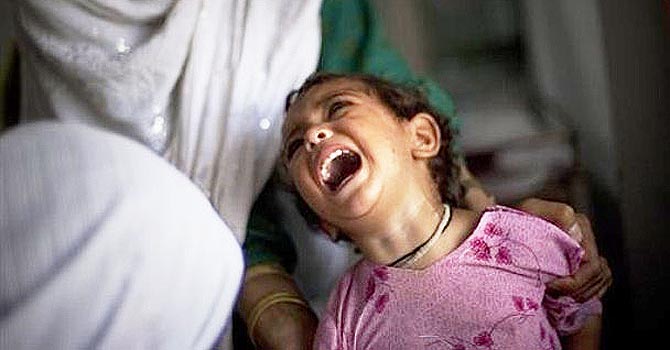
ISLAMABAD: The Planning Commission has drafted a coordinated plan for maternal, neonatal and child health (MNCH) in consultation with the provincial governments and is seeking $600 million from donors to accelerate work for reducing the rates of child and maternal deaths and bring the country closer to meeting the Millennium Development Goals.
The Adviser to the Prime Minister on Social Development, Shahnaz Wazirali, told a meeting in Dubai that the federal and provincial governments had committed financial resources for the plan. However, Pakistan needs continuing support of its key partners like the WHO, UNFPA, Unicef and other donors.
She said the federal government was committed to funding the preventive health programmes till 2014-15. Over Rs21 billion has been allocated from the PSDP this year for the programmes and 92 per cent of the amount goes to maternal, neo-natal and child health schemes.
Pakistan has the lowest rate of child mortality reduction in Asia despite showing a consistent decreasing trend in under-five mortality rate over the past two decades. The rate decreased by 41 per cent between 1990 and 2011 – considerably short of the 66 per cent MDG-4. The national mortality rate has declined by 27 per cent, according to a report prepared by the WHO for the meeting.
Achieving the MDG will require an average annual rate of 14.2 per cent reduction of mortality among children less than five years between 2011 and 2015, which is almost six times the one achieved until 2011, the report says.
If the current trends of reduction in mortality, funds and human resources allocation continue, Pakistan is most unlikely to achieve MDGs-4 and -5. However, if the country makes a high-level commitment and concerted efforts to accelerate the implementation of the cost-effective evidence packages of interventions in full collaboration with partners, allocating the required human and financial resources, it will be able to accelerate progress towards the MDGs and more lives of mothers and children will be saved.
The first-ever meeting of its kind, co-organised by the World Health Organisation, Unicef and UN Population Fund, was held in Dubai on Jan 29-30 under the patronage of Mohammed Bin Rashid Al Maktoum, Vice-President and Prime Minister of the United Arab Emirates and ruler of Dubai.
Ms Wazirali informed the meeting that Pakistan was considering introducing legislation in parliament to provide an enabling environment for mothers and children to seek healthcare and make it incumbent upon the state to provide the essential services.
At the end of the meeting, the countries of WHO’s Eastern Mediterranean region signed a ‘Dubai Declaration’ on ‘saving lives, rising to the challenge’, which detailed seven key concrete actions to enable more women and children to access the health services they needed.
The delegates agreed to urgently accelerate progress on improving maternal and child health between now and the end of 2015. They committed to reducing the gap between current funding levels and those required if the region was to meet the goals on reducing maternal and child mortality.
Ms Wazirali told the meeting that despite considerable level of inputs in terms of policies, programmes and resources, Pakistan would not be able to achieve the goals 4 and 5.
She said key challenges hampering progress in this regard were natural disasters and militancy; expenditure of less than one per cent of the GDP on the health; low utilisation of MNCH services due to inadequate human resources; rural-urban, poor-rich and gender inequalities; dispersed and remote populations; poverty leading to chronic malnutrition; harmonisation and alignment of donor grants; and transition issues emerging from devolution.
Despite these challenges, she said, Pakistan intended to put in place policies and programmes to address the issues and move forward and the Planning Commission had designed the country plan for the next three to five yeas.
She said the plan is based on interventions and strategies and covered delivery of a package of MNCH services in 40 least developed areas and districts through a voucher scheme; mobile health units and mobile phones to community mother and child health centres; building on public private partnership models; strengthening coordination among the health workers concerned; a robust communication and behaviour change strategy; and a greater level of accountability through a strengthened district health information system and surveillance of maternal and child deaths.












































